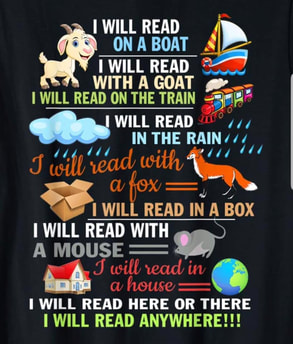 This last year, I have posted once or twice about giving and receiving Story Listening lessons. At the end of last year Alice Ayel and I decided to do a tandem and teach each other German and Spanish respectively through Story Listening. It's a great opportunity to gain language and also use the lessons to work on your teaching skills. I have written more about this experience here. Since the whole premise of the underlying Input Hypothesis by Stephen Krashen is that language acquisition is subconscious you wait and wonder if your language is improving. A good teacher doesn't let you struggle with comprehension, so the fact that I am comprehending is a mixture of great teaching and gains in language abilities. So how can I tell I am indeed improving?
0 Comments
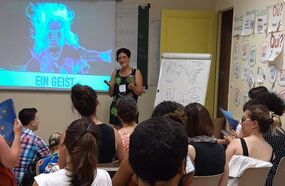 Thank you to everyone who came to one or both of my sessions at the Agen workshop this last week. As promised you will find all the links I referred to in my presentation here. You can also see the video from my class below. The clips show the high level of student engagement during a Story Listening lesson. The students produce completely unforced and spontaneous German output (they started classes at the end of August and this lesson is from November or December) and are entranced by the drawings. You can hear the laughter we share and the connections we're building. More of my lessons are posted on YouTube and come August I will post more regularly so my students can watch them at home if they choose too or if they missed a class. Thank you for all your nice feedback and attention and for staying conscious and attentive even in the 40C+ heat in the room. It was a pleasure. Feel free to write a comment, would be lovely to hear from you. <3
Ever wonder why every language teacher you ever had tells you NOT to use Google translate or other translation software? Why should we even learn another language when there is software for it? Well, maybe this translation from Google Translate gives you an idea why:
Just recently I became a student in two language classes again. I started a tandem Story Listening class with Alice Ayel, who is teaching me Spanish, while I teach her German. At the same time, I have started to take an online French class as part of my Masters of English Studies program. I am excited to take both because I believe that a teacher, who stops learning is like a cook who stops eating. So here is my taste test.
While both classes have a listening comprehension focus, they are fundamentally different in their approach and in how they effect me as a learner. Let's start with the attributes they have in common:
"Just listen and observe. Follow the story, don't focus on every single word. Make sure your ears and eyes are with me. Relax and enjoy." This is my set up to story listening. This powerful method to deliver CI, has been developed and tested out extensively by Beniko Mason. I first saw her demonstrate what she does in Agen, France last summer. I was really intrigued, but also confused about where to start and nervous about being able to make sure it's comprehensible AND enjoyable to my students. And then, I just leaped, searching and prepping stories to my students' level. But before I talk about all the things I like about it, here is a simple description of what it is that I recently posted on Ben Slavic's PLC: The method is rather simple. You simplify a story so that you know your students should be able to understand it. Then you tell the story to the students and as you’re telling it you draw on the board what is happening, some key words and figures. You also add writing so that they can see the words they need. They are written in L2, sometimes in L1 underneath, but then you wipe away L1 to not cause interference.
The student’s’ job is to follow the story as a whole. It is NOT to teach anything to mastery. The goal is to tell the story so the students can understand and follow the major events and details. You can follow this up with reading the story or activities but you don’t have to. 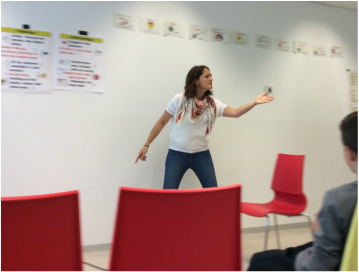 clearly important stuff clearly important stuff I have been very spoiled this year with two TPRS conferences within a few months. I am happy to have been invited to present in Amersfoort in the Netherlands. Three days for 2 hours each, I taught a small group of 4 students beginner German. After some beginning difficulties for the students to understand the translations (as I went into English, but the students were Dutch, not giving us a common language), we were off to create One Word Images together, which we later put into stories (á la Ben Slavic and his Invisibles).  After going to Agen, France this summer to participate in the week long TPRS workshop (can we rename this to thinkshop or something like that, because it certainly made me think, but it never felt like work) my head was buzzing for weeks, it still has not stopped. The post “I don’t hate French anymore” was the immediate result of this. Now, a few weeks later, I am back in school and once again, I find myself reflecting on what I have learned. I have always taught using TPRS (asides from about 2 frustrated weeks in my first year and another couple weeks in my first ES year). The methodology spoke to me like nothing else did, simply because it created a classroom environment that I would have loved as a student. My mentor, Eva Kaufmann, who introduced me to TPRS during my student observations had such engaged kids, it amazed me. I mean, these German threes came into class, immediately switching to German and reading Harry Potter in German in their spare time. Whaaat? That’s how I improved my English AFTER school (Disney movies in English and YA books is where it’s at!) and here these 15/16 year olds have it all figured out. She also had a student, who was in the lifeskill program, who loved her class and had learned, excuse me, ACQUIRED so much! So yes, I knew right away, this was for me and I just jumped in. I never had any training asides from observing Eva and reading the “green bible.” I bought Michael Miller’s Sabine und Michael curriculum and off I was. I don’t hate French anymore
If anyone would have asked me a week ago if I would like to learn French, I would have said: “Thank you, but no thank you.” Why? Because I was a self-proclaimed French language hater. I didn’t enjoy the way the language sounded and had no interest in learning it. Spanish, Swedish, yes, but French? No, thank you. Then I came to Agen, France for the CI/TPRS conference. I was set on observing Spanish lessons all week, because just as much as I had no interest in learning French, I really wanted to learn Spanish. I love the sound of it and I liked my Spanish class in College. I had Spanish for about 4 months and I felt successful in those 4 months. I had French for two years in grade 7 & 8 and I absolutely hated it. I barely passed the class and was thrilled to abandon it when I could. I don’t remember much from my French class. I remember long vocabulary list, flashcards, that are still somewhere in my mom’s house catching dust and freaking out over the accents that accompanied some of the French letters. What I felt when I thought of French is a certain level of anxiety that I couldn’t really explain, but that made me say for the past 20 years: I hate French. 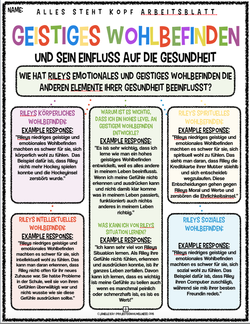 When you start at a new school and you're teaching a whole bunch of new classes, you can get easily overwhelmed with making new lessons, units and all the material that accompanies them. While I don't shy away from making my own materials from scratch (that Graphic Design degree does come in handy!), I am also a firm believer that you don't have to reinvent the wheel every time. So when I started to think about what to do for my next 6th grade unit and I saw that one of the topics, we should cover is puberty/ parent-child relationship, I decided that we could use the movie Inside Out (Pixar/Disney) as a basis for this topic. Most students are familiar with it in English, which is a plus in a language class, it's fun and engaging and it leaves so much room for connecting it to the kids' lives and creativity. I was hoping to find a starting point somewhere in a lesson some other teacher might have already started to develop. I was thrilled to find a health lesson, developed by Project Wellness in my search on Teachers pay teachers. But, of course, the unit was meant for Health and P.E. lessons, not German. So instead of downloading the PDFs and then having to change everything to German whilst destroying the incredible design of the original file, I took a shot and contacted Janelle from Project Wellness, to ask if I could have the original files instead. Of course, I ensured her that those files would be for editing purposes only and that I would neither sell nor give them to anyone else. We all know that we work hard on our material and that just ain't right! Instead I offered that I could send them back to her after I change everything to German and that way she could offer them in German from thereon after. This was probably my favorite unit I have worked on with my 6th graders this year. They were engaged, had heated discussions, shared a little or a lot about themselves and produced beautiful end projects: Islands of Personality, which you can find here. Some activities that we did were:
Since moving back to Germany I have been looking for TPRS and CI communities in Europe and now I have finally found what I was looking for. From 25.-30.07 there will be a TPRS workshop in Agen, France. Not only will this undoubtedly lead me to the community I am seeking, but Stephen Krashen himself will be there to speak and THAT is pretty much unbeatable.
Sign up for the workshop can be foud here: TPRS witch |
If you like my videos and materials, consider buying me a coffee. :)
Archives
May 2022
Categories
All
|

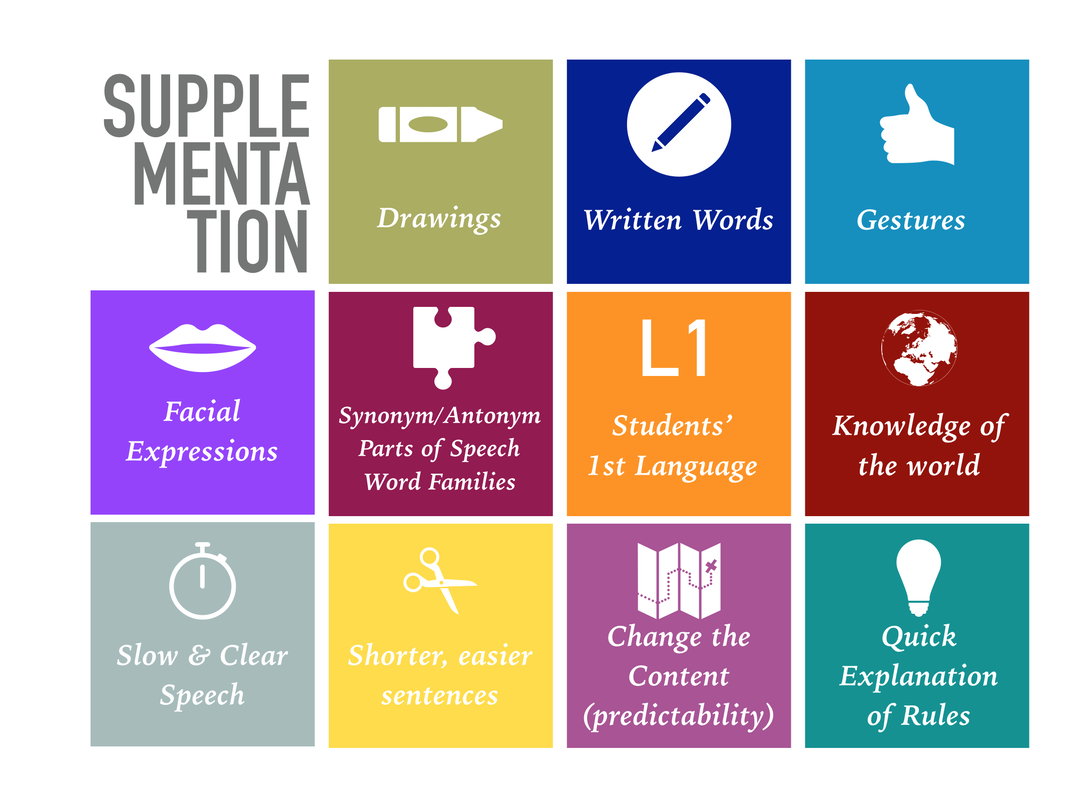

 RSS Feed
RSS Feed
